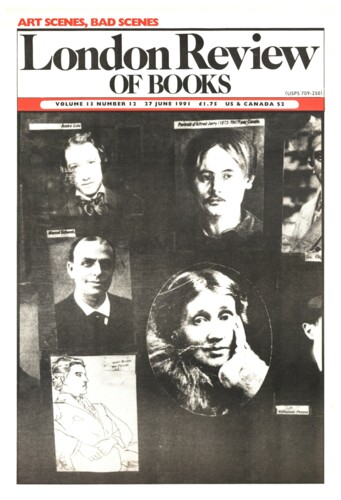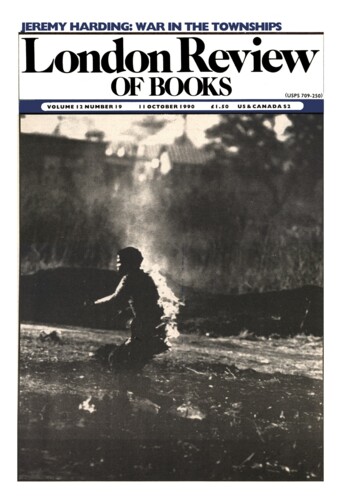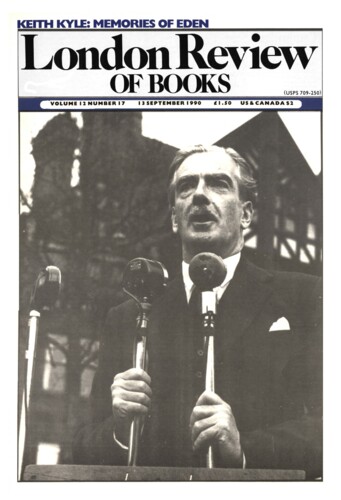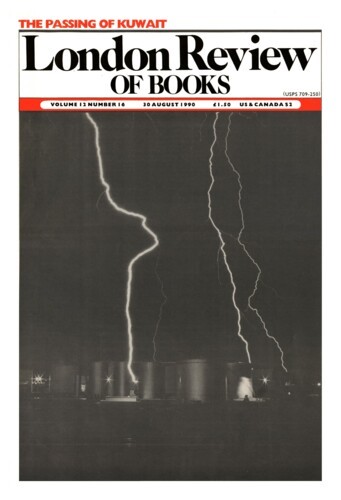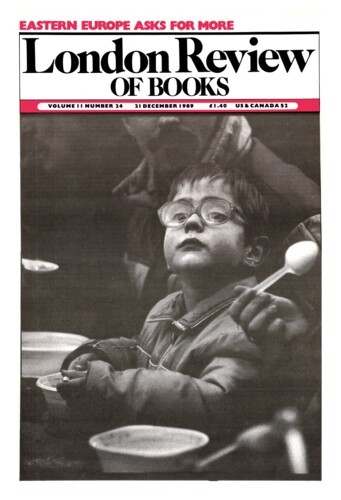Interdisciplinarity
Dinah Birch, 27 June 1991
It has never been easy to place Ruskin. In his own lifetime, his influence was fragmented by the bewildering range of subjects he undertook to write about. The dislocation has continued since his death. As far as the mainstream disciplines in Britain are concerned (his legacy in America is a separate story), he has always seemed tangential. The works have become a kind of multiple service industry, studied in part and for divergent reasons. Art historians need to know something about him; so, in quite another manner, do political economists. Those wanting to look at the development of religion, or mythography, or science, find him unignorable. He inevitably interests cultural theorists. And then, of course, there are the literature specialists, who know that the development of Hopkins, Pater, Proust, and many others, cannot be understood without some reference to Ruskin. These assorted academics have all come up with their own versions of what is most significant in Ruskin’s multitudinous output, and most of them are ignorant of what most of the others have said.
